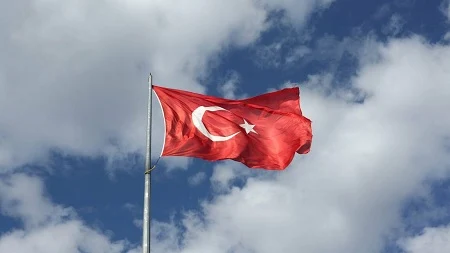How to explain the collapse of the Turkish lira?
For some observers, Turkey is sinking into an inflationary spiral as the Turkish lira has lost nearly 45% of its value against the dollar in a year. Contrary to classical economic theories, President Erdoganbelieves that high interest rates promote inflation. He has even repeatedly advanced the precepts of Islam, which prohibits usury, to justify his policy. In accordance with the wish of the Head of State, the central bank - officially independent - lowered its key rate by five points in four months, each time causing a new plunge in the pound. Mr. Erdogan has in parallel sacked three central bank governors since July 2019 and replaced his Minister of Finance on three occasions since July 2018 - the last of which on December 2, in the midst of a debacle.
Sunflower oil price increased 86% year on year
Turkish economists from the Inflation Research Group (ENAG) say the real rate of inflation reached 82.8% year-on-year, well above official figures. - food and energy in particular - is becoming difficult to sustain. Gas and electricity thus increased by 50% and 25% respectively on January 1. 86% sunflower oil and 54% bread over one year. Eighteen months before the next presidential term, official inflation has now reached seven times the target set at the start of the year by the government, and this deterioration in the economy risks damaging President Erdogan's already established popularity. , which has built its electoral successes over the past two decades on promises of prosperity.
The bet of growth at all costs
The president is staying the course against all odds: on Monday, he again welcomed the good performance of the Turkish economy, with a growth rate of 7.4% over one year in the third quarter of 2021 - mainly thanks to exports carried by low prices. "Thanks to the reforms which we carried out, we succeeded in freeing the Turkish economy of its chains and the Turkish democracy of the tutelage", he affirmed. President Erdogan seems to be betting on growth at all costs and brushing aside fears of a monetary crisis, betting on investment, production and exports.
The idea would be to make Turkey a great exporting power thanks to its low prices, like China, some observers believe. He praised Monday a 32.9% increase in exports over one year in 2021, to 225.37 billion dollars. But last month, the main employers' organization (Tüsiad), which represents 85% of exporters, warned him sternly, calling on him to correct the situation. "The political choices implemented have not only created new difficulties for the business world but also for our fellow citizens", estimated the Tüsiad, asking the Head of State to "return to the economic principles established in the framework. of a market economy ".
Turkey may quickly run out of money
Faced with the rapid plunge of the currency, the Head of State took a series of measures to counter the collapse of the currency and its popularity: he urged the State to compensate for any depreciation of bank deposits in pounds against the greenback, thus drawing on public funds. By December 30, the state's net reserves had fallen from $ 12.2 billion to $ 8.6 billion in one week. And several members of the opposition say the country will quickly run out of money. In this strongly degraded economic context, President Erdogan raised the minimum wage on January 1 from 2,825.90 to 4,253.40 pounds (around 275 euros), a 50% increase largely erased by the economy. "I fear that not all wage increases melted in two months ",

